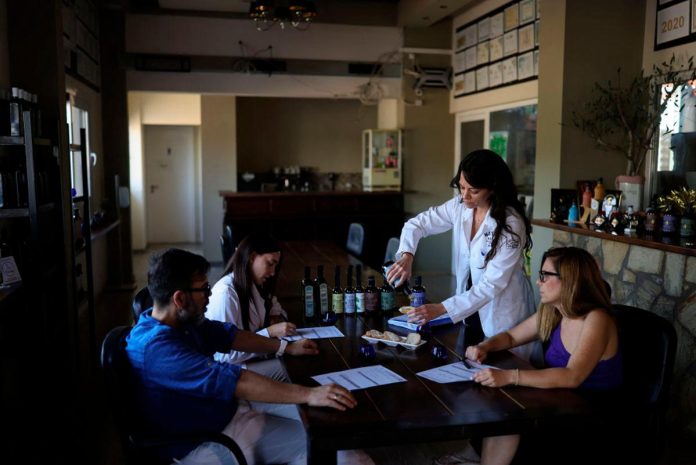VARVASAINA: Greek olive oil producer Konstantinos Papadopoulos acted swiftly when U.S. President Donald Trump hinted at imposing tariffs on European goods earlier this year.
His family-run business quickly secured a new buyer in Brazil, a market traditionally dominated by Portuguese olive oil.
A shipment of 15,000 bottles is set to arrive in Itapoa soon, with another deal in Australia nearing completion.
“I think we learned a lesson from Trump not to rely with all our strength on one market… and to always have alternatives,“ Papadopoulos said during a visit to his mill, where tanks brimmed with olive oil ready for export.
The proposed 30% tariff on EU products has rattled industries from wine to automobiles, pushing producers like Papadopoulos to explore new markets preemptively.
Greece, the fifth-largest olive oil exporter to the U.S., ships 8,000-10,000 tonnes annually. Other major European producers—Spain, Italy, and Portugal—face similar challenges.
For Greece, olive oil is a cornerstone of agriculture, with ancient groves dotting its landscapes.
The Papadopoulos family exported 350 tonnes to the U.S. in 2024, a third of their total output. This year, shipments have dropped to 100 tonnes, with a projected 40% decline if tariffs take effect.
“While we had built all our infrastructure based on a large scale on the American market, suddenly we see it disappearing,“ Papadopoulos said. – REUTERS








